On the 1th June 2012, Prof. Jiří Drahoš, president of the ASCR, awarded professor Johann Arnason the Palacký Medal for social sciences by the Czech Academy of Sciences. Prof. Arnason cooperates over a long period with the Czech scientists, especially the Institute of Philosophy of the Academy of Sciences of the Czech Republic and the Faculty of Humanities Charles University. Currently he is a visiting professor at the Institute of Philosophy ASCR, where he focuses on the specification of the concept of “multiple modernities”.
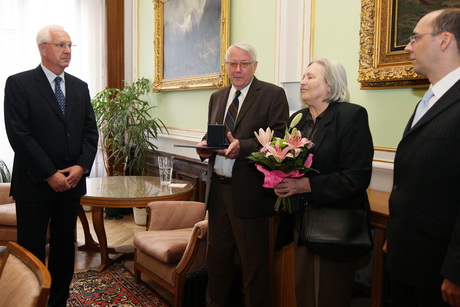
The laudatio was presented by Marek Hrubec, director of the Centre of Global Studies (on the right).
Professor Arnason studied philosophy, sociology and history at universities in Frankfurt, Prague and Rome. After studies he has given lectures at the Universities of Heidelberg and Bielefeld. From 1975 to 2003 he worked at La Trobe University in Melbourne, since 2004, is a Professor Emeritus.

Prof. Johann Arnason with his wife
Johann Arnason started his academic career in Germany before coming to Australia in 1975. His
early research focused on the work of the Frankfurt school, specifically on the Marxist concept of
pr a xis . His critical appraisal of Marcuse's reappropriation of this concept led him to stress
the need for critical theory to be grounded in an anthropological basis if it were to escape from
reductive technological determinism. Retaining the concept's insight into the cultural creativity
of human activity, he went on to engage with macro-sociological issues and to formulate a theory of
modernity motivated by the need to do justice to both the contingency and cultural
creativity/diversity of human history.
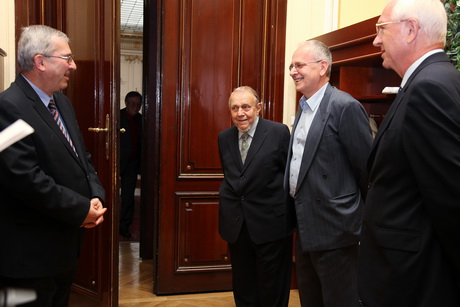
Photos: Stanislava Kyselová, Academic bulletin
This led him to turn away from Habermas' evolutionary view of human development back to
Weber's concept of culture. As part of this, Arnason has engaged extensively with civilizational
theory. More recently, he has become one of the leading figures in a new strand of thought known as
the school of "multiple modernities," which has been gaining increasing recognition since the
publication in 2000 of a special issue of the journal Daedalus devoted to it. This school of
thought seeks to overcome both the classical modernization paradigms of the cold-war period and the
notions which gained favour after the collapse of East European communism of an "End of History"
(Fukuyama) or a clash of civilizations (Huntington).
20 Jun 2012
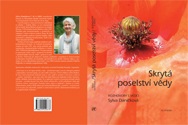



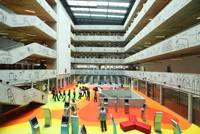






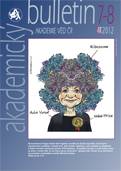

 Česky
Česky
